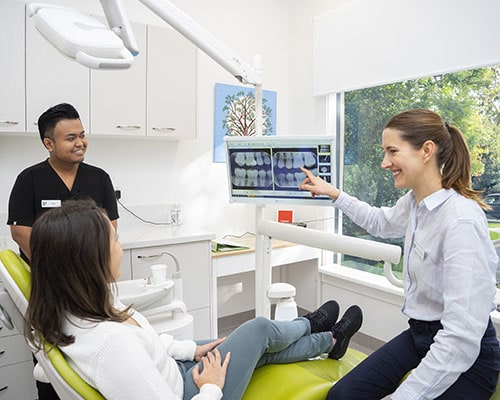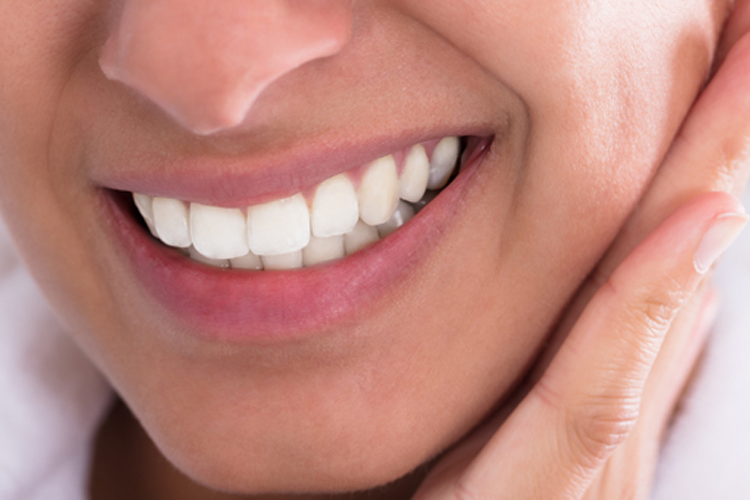Bruxism
A topic that often comes up as a shock or a surprise to our patients during check-ups is teeth grinding and clenching (bruxism). It is very difficult to pick up teeth grinding and clenching yourself, unless you have got someone who heard you grinding or clenching your teeth at night. This is because most of the work is done when we are sleeping.
We have prepared something here to answer some of the more popular questions our patients have about teeth grinding and clenching.
-
When do we grind and clench?
We would find ourselves grinding and clenching our teeth especially at night. There are also times during the day when we find ourselves clenching our teeth together when we are concentrating, for instance, focusing in front of the computer, watching an intense TV show or even learning how to drive for the first time!
-
Why do we grind and clench?
Evidence does relate the cause of teeth grinding to psychological factors – the main one is stress. We often find ourselves grinding more frequently when we are caught up in a stressful period of time – such as heavy workload at work, seeking new employment, family matters and for students, exams. Other possible causes can be fatigue, being nervous or trying to concentrate.
-
What are the impacts of teeth grinding and clenching to our mouth?
The main impact of grinding and clenching would be teeth wear. Grinding and clenching our teeth for a long period of time will result in the wear and tear of our teeth. We will ultimately have shorter teeth, significantly higher risk of fillings in our mouth to break away, as well as chips and fractures of our natural teeth.
-
How do we know if we are grinding or clenching at night?
The most reliable method here is to visit your dental surgery! Your dentist should be able to tell if you do grind or clench by looking at the wear patterns on your teeth. Some other symptoms that comes with grinding and clenching are sore teeth in general (in the absence of any decay or other problems), sore and tight muscles of the face, temporal headaches and neck pain. These symptoms are very obvious and appear primarily in the mornings and slowly subside during the day.
-
How do we stop grinding or clenching? Are there any dental treatments to help with these?
The most effective solution with grinding and clenching is good stress management. Find enjoyable activities that you can do to relieve your stress! In terms of dental treatment, we can help by constructing a night guard which is a clear plastic acrylic which fits onto your entire top teeth. This is to be worn before you sleep at night, and if you do grind, you will be grinding on the night guard rather than your teeth. Something else that you can do to alleviate the other symptoms mentioned above is good routine jaw exercises!
If you think you have experienced these symptoms before, or have heard someone tell you that you are grinding your teeth, pay your dentist a visit or bring it up at your next appointment! We will be more than happy to help you address your concern or answer any other questions you may have about bruxism.
Please give Fullarton Park Dental a call on 8272 5271 if you have any further questions or if you would like to book an appointment with one of our dentists.




